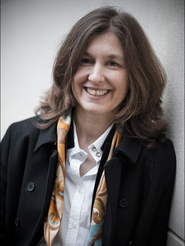Measuring practice, 1890-1930
Julia Kursell (University of Amsterdam)
This talk looks at the history of intersections between musical practice and experimental research. In the end of the 19th century, physiologists and psychologists began to invite musicians to their laboratories, in order to study their movements, metabolism, reaction times and other functions of the human body and mind. In the early 20th century, the expectations towards such studies became more specific: experimenters and musicians began to collaborate in search of musical beauty and the most economical way to reach virtuosity.
The talk focuses on a case in the early Soviet Union. Russian neurophysiologist Nikolai Bernstein took part in the attempts to economically organize the “work of piano playing”. Developing his own complex instruments for observing the movements of pianists’ hands, he stumbled upon a discrepancy between current piano pedagogy and his own measurements. I will discuss how this led him to take on a new view on how we steer the movements of our body.
Friday, August 30, 11.00-11.45
Thematic Session 3: practicing
About Julia Kursell
Julia Kursell is professor of musicology at the University of Amsterdam (UvA). Before coming to Amsterdam, she worked at Bauhaus University, Weimar, and as research fellow at the Max Planck Institute for the History of Science, Berlin. Her research interests include the history of the physiology and psychology of hearing, as well as the relation between music, media and technology in Western composition after 1945. She published widely in these areas in journals such as Configurations, Greyroom, OASE. Most recently, the volume Music, Sound, and the Laboratory, co-edited with A. Hui and M. W. Jackson, has come out with Chicago University Press.

